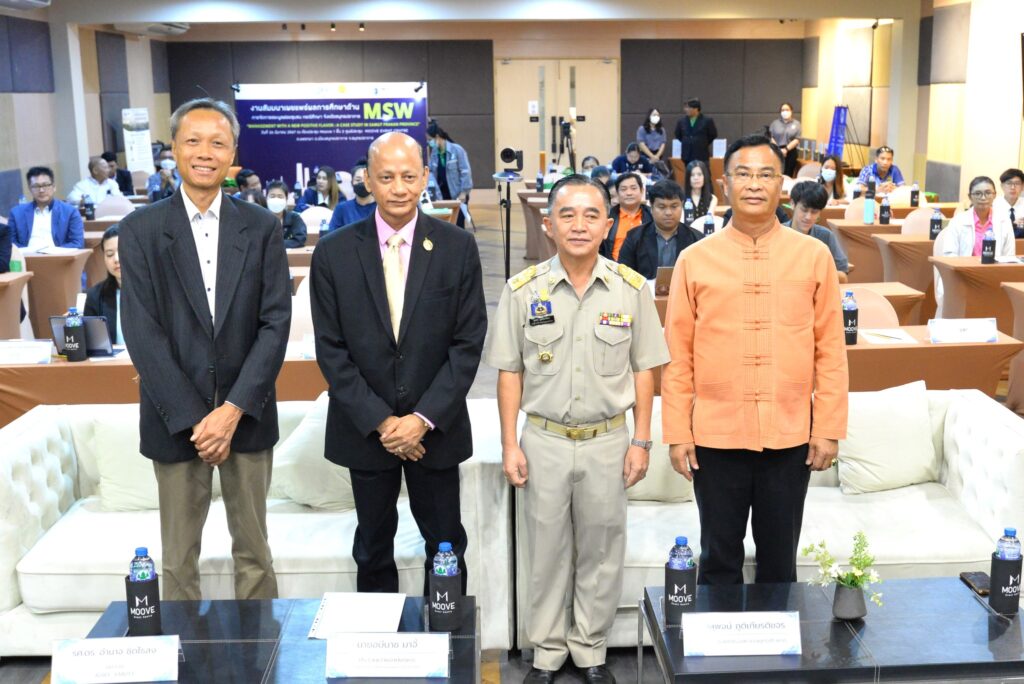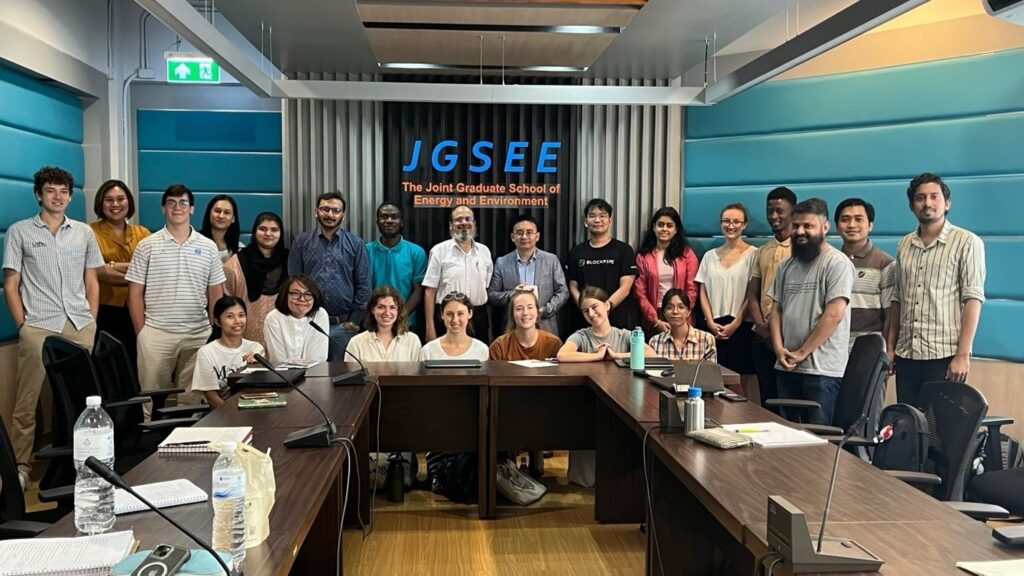On 30 October 2025, a delegation comprising researchers from the Research Consortium on Algal Technology for Carbon Capture and Bioproducts, international bioeconomy expert Prof. Lene Lange, and representatives from Hub Net Zero and the Program Management Unit for Human Resources & Institutional Development, Research and Innovation (PMU-B) visited Phetchaburi Province for a study tour on seaweed cultivation. The visit aimed to gain a deeper understanding of the local cultivation landscape and explore how technology and innovation can enhance seaweed production.
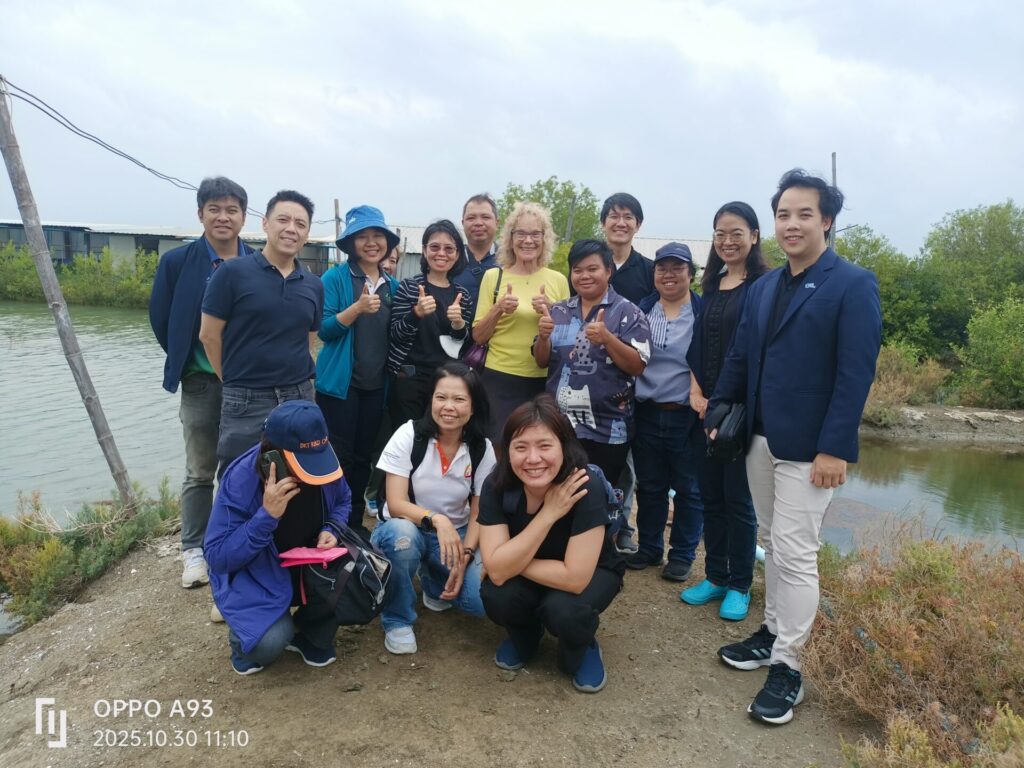
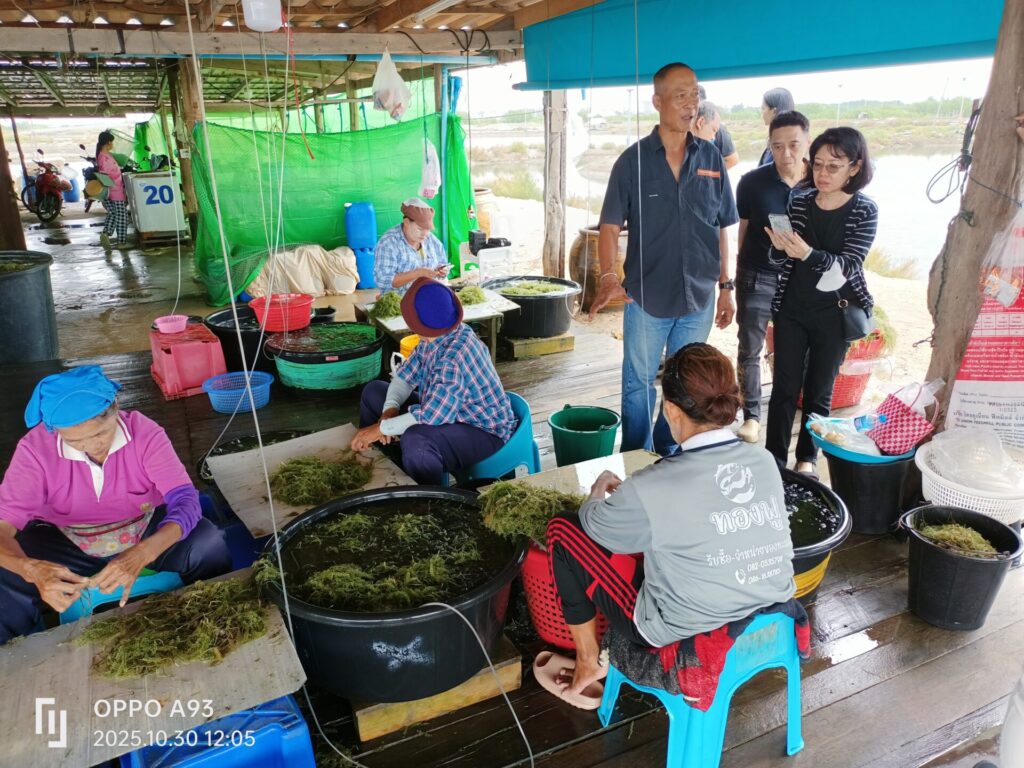
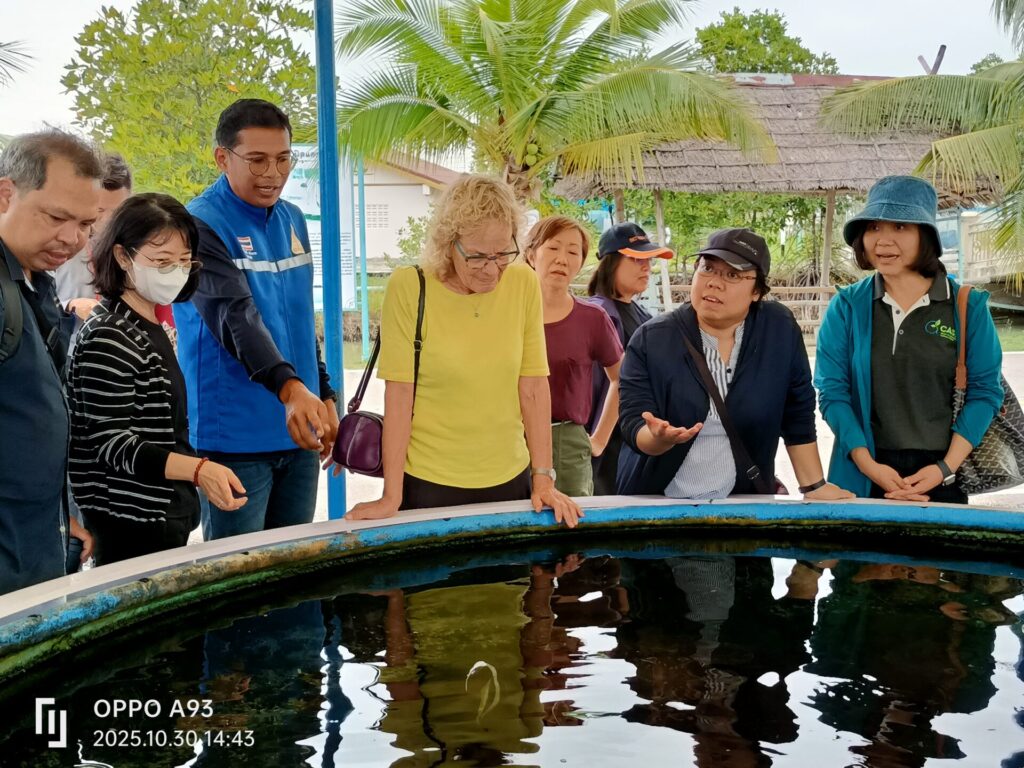
The delegation visited the Phetchaburi Aquaculture Demonstration Farm and two private enterprises — Family Farm and Khun Chai Farm — to observe cultivation models and challenges in practice.
The Phetchaburi Aquaculture Demonstration Farm, established under the royal initiatives of Her Majesty the Queen, serves as a learning center for aquaculture farmers and the general public. The center promotes sustainable, zero-waste aquaculture practices that integrate the cultivation of shrimp, fish, abalone, seaweed, artemia, and salt farming. It has played a pivotal role in encouraging local farmers to adopt seaweed cultivation, particularly sea grapes (Caulerpa lentillifera) and sea lettuce (Ulva spp.), as sustainable alternatives to shrimp farming — an industry increasingly affected by disease outbreaks.


At Family Farm and Khun Chai Farm, the team observed commercial-scale cultivation of sea grapes and sea lettuce. Family Farm operates both crops, with sea grapes grown in repurposed clay ponds formerly used for shrimp, and sea lettuce cultured in tanks. Khun Chai Farm focuses solely on sea grape cultivation in clay ponds.


The farmers shared key challenges facing their operations, including the proliferation of unwanted seaweed species and the impact of heavy rainfall, which reduces salinity levels and hampers sea grape growth. Both farms currently employ a sowing method that requires manual harvesting — a process that could potentially be improved by adopting a longline cultivation system, offering a simpler and less labor-intensive approach.
The study visit provided valuable insights into the practical constraints and opportunities of seaweed farming in Thailand. The research team will apply these findings to develop innovative, technology-driven solutions that can improve cultivation efficiency, resilience, and productivity — contributing to Thailand’s broader goals in carbon capture, sustainable aquaculture, and bioeconomic development.

